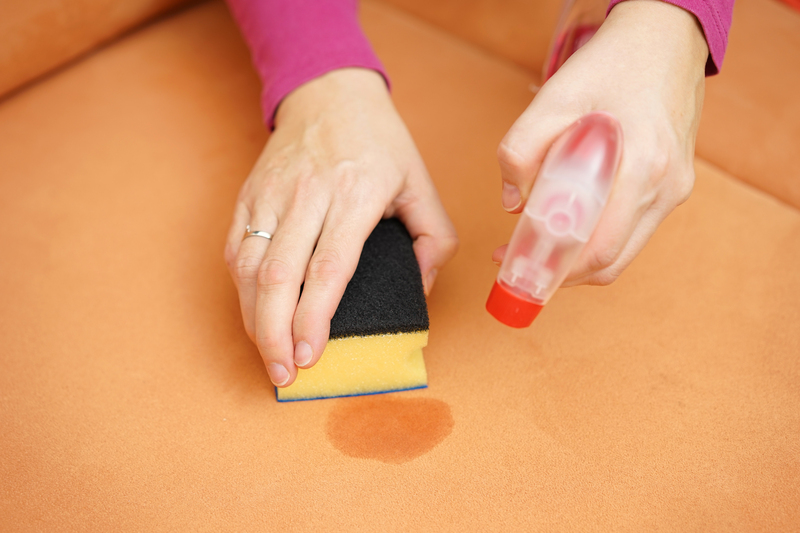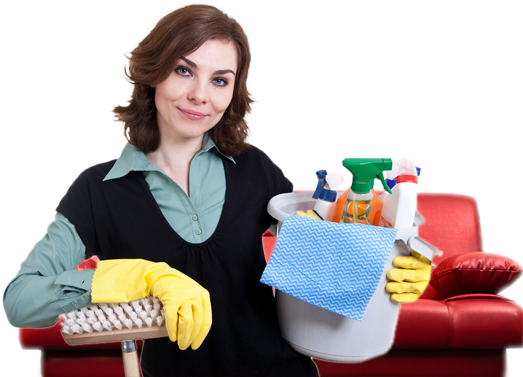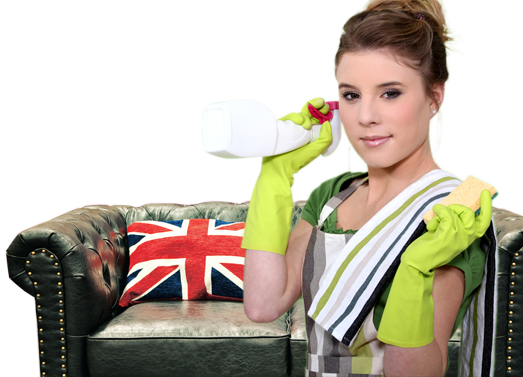Professional Tips for Jewelry Cleaning at Home
Posted on 24/09/2025
Professional Tips for Jewelry Cleaning at Home
Owning beautiful jewelry is a joy, whether it's a sparkling diamond ring, a family heirloom necklace, or your favorite gold bracelet. However, keeping your jewelry collection dazzling requires regular care and cleaning. While many people consider professional servicing, the good news is that with the right techniques, you can maintain your precious pieces at home. In this comprehensive guide, we'll share professional tips for jewelry cleaning at home, expert advice, safe methods, and how to keep every gem and metal in pristine condition.
Why Cleaning Your Jewelry at Home Matters
Every piece of jewelry deserves meticulous attention, but dirt, oils, sweat, and cosmetics can tarnish the shine over time. Not only does regular cleaning restore brilliance, but it also helps in preserving the longevity and value of your items. Neglecting cleansing routines can lead to stubborn buildup, loss of luster, and even potential skin irritation.
- Enhances Aesthetic Appeal: Clean jewelry sparkles and elevates your overall appearance.
- Prevents Damage: Dirt and grime can cause wear and tear on delicate settings.
- Maintains Value: Regular maintenance keeps stones and metals in top condition, retaining their worth.

Essential Jewelry Cleaning Supplies for Home Use
Before diving into the step-by-step techniques, gather your cleaning supplies. Here's what most professionals recommend for effective jewelry care at home:
- Soft-bristle toothbrush or a jewelry cleaning brush
- Mild dish soap without harsh detergents
- Lukewarm water (not hot, to avoid damaging stones and metals)
- Lint-free or microfiber cloth
- Bowl for soaking
- Cotton swabs for tight spaces
- Baking soda (for specific metals)
- Aluminum foil (for silver jewelry)
How to Clean Jewelry at Home: Professional Techniques
There's no universal cleaning method for all jewelry types. Diamonds, gold, silver, and delicate gemstones each require specific care. Here's how to keep all your treasures sparkling with safe, professional cleaning at home:
Cleaning Gold Jewelry
Gold is durable, yet it benefits from gentle cleaning. Avoid abrasive materials that can scratch the surface.
- Mix a few drops of mild dish soap with lukewarm water in a bowl.
- Soak the gold jewelry for 15-20 minutes to loosen debris.
- Gently scrub with a soft-bristle toothbrush, paying attention to intricate details.
- Rinse thoroughly under lukewarm running water. Be sure to plug the drain!
- Pat dry with a lint-free cloth, then allow to air dry completely before storing.
How to Clean Silver Jewelry at Home
Silver is renowned for its shine but is prone to tarnishing. Fortunately, you can restore its brilliance at home with household items.
- Line a bowl with aluminum foil, shiny side up.
- Add one tablespoon of baking soda and one tablespoon of salt.
- Pour hot (not boiling) water to dissolve the mixture.
- Place your silver jewelry in the solution so it touches the foil.
- Let it soak for 5-10 minutes. Tarnish will transfer to the foil.
- Remove, rinse under cool water, and buff with a microfiber cloth.
Cleaning Diamond Rings and Gemstone Jewelry
Diamonds and colored gemstones need specific treatment. Ultrasonic cleaners are popular with professionals but aren't always suitable for home use. Here's a safe home method:
- Prepare a mixture of warm water and mild dish soap.
- Soak your diamond or gemstone jewelry for 15-30 minutes.
- Use a soft brush to gently clean under prongs and around gemstones.
- Rinse carefully under running water.
- Dry with a lint-free cloth and inspect for loose settings.
Tip: Some gemstones (like opals, pearls, emeralds) are delicate. Avoid soaking and only use a damp cloth to wipe them clean.
Pearl & Delicate Jewelry Cleaning at Home
Pearls are organic and can be easily damaged by water, chemicals, and abrasives. For pearl jewelry:
- Wipe pearls with a soft, damp cloth after each wear.
- If a deeper clean is needed, use a cloth dipped in a solution of water and a drop of mild soap (never soak pearls).
- Let air dry on a soft towel before storing.
How to Clean Costume Jewelry at Home
Costume pieces usually feature base metals and glued stones that don't hold up to soaking. Try this professional trick:
- Dip a soft-bristled brush or cotton swab in a mild soap and water solution.
- Gently clean only the surfaces; avoid saturation.
- Wipe immediately with a dry, lint-free cloth.
Professional Tips for Safe, Effective At-Home Jewelry Cleaning
- Never use harsh chemicals: Bleach, alcohol, or ammonia can pit or discolor metals and damage stones.
- Be gentle: Excessive scrubbing may loosen prongs and stone settings.
- Avoid certain ultrasonic cleaners: Many at-home devices can harm soft stones like turquoise, opal, and pearls. Always check suitability first.
- Use clean water: Minerals in hard water can dull your jewelry's shine.
How Often Should You Clean Your Jewelry?
Frequency depends on how often you wear your jewelry and what it's exposed to. For most items, a gentle home cleaning once a month keeps them in top shape. However, wedding rings or daily-wear pieces can benefit from weekly cleaning.
Signs Your Jewelry Needs Cleaning
- Dullness or loss of shine
- Visible buildup or dirt, particularly under stones
- Skin irritation after wearing
- Unpleasant odor (especially in vintage or antique pieces)
The Dos and Don'ts of At-Home Jewelry Cleaning
Dos
- Do store your jewelry properly to reduce tarnishing and scratching.
- Do inspect settings and prongs regularly--loose stones can be lost during cleaning.
- Do choose the right cleaning method for each material. When in doubt, consult a professional.
- Do use only soft, non-abrasive materials for drying and polishing.
Don'ts
- Don't use toothpaste, baking soda, or abrasive powders on delicate or set stones.
- Don't expose jewelry to harsh chemicals, including household cleaners and chlorine in swimming pools.
- Don't clean multiple pieces together; different metals and stones can scratch each other.
- Don't ignore manufacturer recommendations. Some pieces come with specific care instructions.
Storage and Maintenance: Keeping Your Jewelry Clean
Cleaning is only half of the equation. How you store and handle your jewelry matters just as much:
- Use soft-lined jewelry boxes with compartments to prevent tangles and scratches.
- Keep pieces dry and away from direct sunlight and heat.
- Place anti-tarnish strips in silver storage pouches or boxes.
- Remove jewelry before swimming, showering, or using beauty products like lotions and perfumes.
Special Considerations for Antique and Vintage Jewelry
Older or heirloom pieces need extra care during at-home cleaning. Fragile settings, softer stones, and patina can easily be damaged by aggressive methods. When in doubt:
- Consult a professional jeweler before attempting to clean valuable or delicate vintage items.
- Avoid ultrasonic cleaners and harsh solutions.
- Gently dust with a soft brush and wipe with a microfiber cloth.
Professional Alternatives: When to Seek Expert Jewelry Cleaning
While at-home cleaning is convenient, some situations call for professional attention:
- Stubborn tarnish or intricate designs that are hard to clean at home
- Loose, damaged, or missing stones and prongs
- Antique, heirloom, or highly valuable jewelry pieces
- Need for deep cleaning, repairs, or re-plating
Tip: Even with regular at-home care, schedule a professional cleaning and inspection at least once a year for your most precious pieces.

Frequently Asked Questions About Jewelry Cleaning at Home
Can you clean jewelry with vinegar or baking soda?
Baking soda is suitable for silver jewelry, but should be avoided on gold, pearls, and gemstones due to its abrasiveness. Vinegar can corrode stones and metals--it is not recommended for most fine jewelry.
Is it safe to use toothpaste to clean jewelry?
Despite popular belief, toothpaste is abrasive and can scratch metals and stones. Stick to mild, non-abrasive cleaners designed for jewelry.
What about ultrasonic jewelry cleaners?
Ultrasonic cleaners can be effective for diamonds and sturdy gems but may damage pearls, opals, and some vintage settings. Check your jewelry's suitability before use.
Conclusion: Make Jewelry Cleaning At Home a Lasting Habit
With these professional at-home jewelry cleaning tips, you can maintain the stunning brilliance of your favorite pieces without a trip to the jeweler. Consistency and gentle care are key--regular cleaning, proper storage, and a little attention to detail will ensure your collection remains sparkling for decades to come.
- Be gentle and consistent in your cleaning routine
- Keep cleaning materials handy for quick touch-ups
- Store jewelry correctly to minimize tarnish and damage
Remember, when in doubt or dealing with precious heirlooms, always consult a trusted jewelry professional. For everything else, these expert-approved techniques will keep your treasures shining brightly at home.





